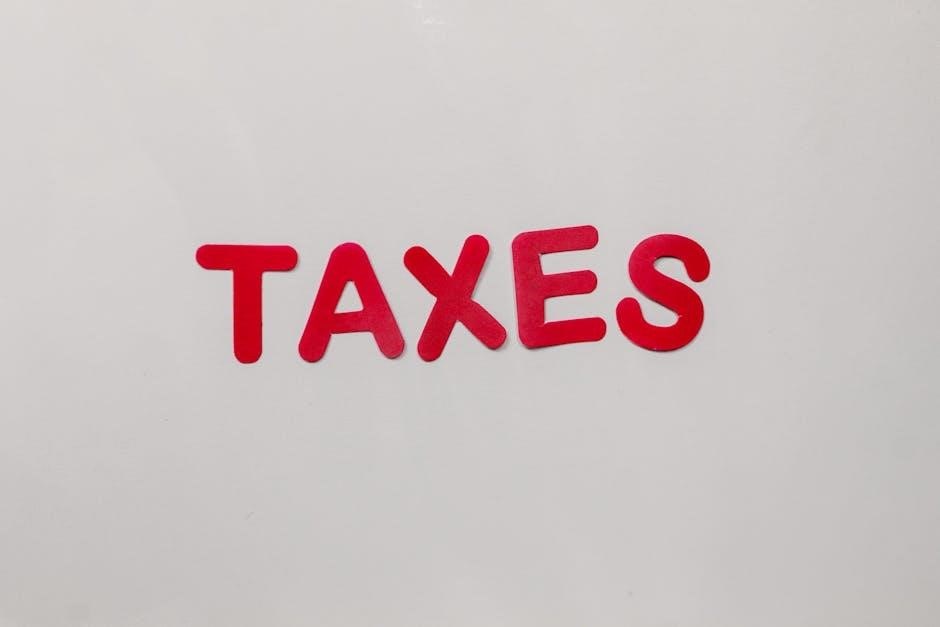westlake financial repossession policy pdf
Westlake Financial is a well-known automotive financing company. Their repossession policy outlines procedures for handling defaulted loans, emphasizing legal compliance and borrower rights.
Overview of Westlake Financial Services
Westlake Financial Services, established in 1988, specializes in automotive financing and leasing. They provide indirect auto loans through a vast network of dealerships nationwide.
The company is headquartered in Los Angeles, CA, and has built a reputation as a prominent player in the auto finance industry. Westlake Financial offers various financial products tailored to meet diverse customer needs.
While they serve a wide range of customers, their services have drawn mixed reviews. Some customers praise their loan options, while others criticize their repossession practices and communication.
Westlake Financial operates with a focus on compliance and customer support, though controversies surrounding their repossession policies have led to legal disputes and consumer complaints.
Importance of Understanding Repossession Policies
Understanding Westlake Financial’s repossession policies is crucial for borrowers to avoid unexpected financial harm. It helps individuals grasp their rights and obligations, ensuring they can take proactive steps to prevent repossession.
Knowing the triggers and procedures allows borrowers to address payment issues early, potentially avoiding damage to their credit scores. It also clarifies the legal framework, protecting consumers from unfair practices.
Familiarity with the policy enables borrowers to understand post-repossession rights, such as retrieving personal belongings or disputing charges, and to explore redemption options to regain their vehicle.
The Repossession Process
Westlake Financial’s repossession process is a structured procedure involving legal steps to reclaim vehicles when loan obligations aren’t met, ensuring compliance with regulations.
Triggers for Vehicle Repossession
Vehicle repossession by Westlake Financial is typically triggered by missed payments or defaulting on loan terms. Borrowers who fail to meet payment obligations risk repossession. Additionally, violating contract terms, such as failing to maintain insurance or providing false information, can lead to repossession. Westlake Financial often sends notices before taking action, allowing borrowers to address overdue payments. If unresolved, the lender may reclaim the vehicle, often without court intervention, as per state laws. Borrowers should review their contracts to understand specific triggers and their rights during the process.
Steps Involved in the Repossession Procedure
Westlake Financial’s repossession process begins with missed payments, leading to default. The lender typically sends a notice of delinquency, outlining the overdue amount and deadline for payment. If unresolved, Westlake Financial may authorize a repossession agent to reclaim the vehicle, often without prior notice. Once repossessed, the vehicle is stored, and the borrower is notified of fees and redemption options. The lender may sell the vehicle at auction to recover losses. Borrowers are responsible for paying repossession fees, which include towing and storage costs, as detailed in the loan agreement and applicable laws.
Post-Repossession Actions by Westlake Financial
After repossession, Westlake Financial notifies borrowers of accrued fees and the vehicle’s sale details. The lender sells the vehicle at auction to recover losses. Proceeds are applied to the loan balance, with any surplus returned to the borrower. If the sale doesn’t cover the debt, Westlake Financial may pursue legal action for the deficiency balance. Borrowers are responsible for paying repossession fees and any remaining loan balance. Westlake Financial must comply with legal requirements, ensuring proper documentation and communication throughout the process. Borrowers may also be offered options to redeem the vehicle before sale.

Legal Considerations
Westlake Financial must adhere to state-specific repossession laws, ensuring proper notification and documentation. Borrowers are protected under consumer rights, and lenders must avoid unlawful practices during repossession.
Laws Governing Vehicle Repossession
Vehicle repossession is regulated by state-specific laws and the Uniform Commercial Code (UCC). Lenders like Westlake Financial must follow legal procedures, including proper notification and documentation. In most states, a written agreement is required, and if the loan is in default, the lender can repossess the vehicle without a court order. However, some jurisdictions mandate court involvement. After repossession, the lender must sell the vehicle in a commercially reasonable manner, often through auction. Borrowers retain the right to redeem the vehicle by paying the outstanding balance plus fees. Failure to comply with these laws can result in legal consequences for the lender.
Borrower Rights During Repossession
Borrowers have specific rights during repossession, primarily aimed at protecting them from unfair practices. Under the Uniform Commercial Code and state laws, lenders like Westlake Financial must follow legal procedures. Borrowers are typically entitled to receive notice before repossession, detailing the default and steps to cure it. After repossession, borrowers usually have the right to redeem their vehicle by paying the outstanding balance plus fees. Additionally, lenders must sell repossessed vehicles in a commercially reasonable manner, with borrowers often having the right to attend the sale or receive proceeds if the vehicle sells for more than the debt. Failure by the lender to adhere to these rights can lead to legal consequences, ensuring borrowers are treated fairly throughout the process.
Westlake Financial’s Legal Obligations
Westlake Financial must adhere to state and federal laws when conducting repossession. This includes providing borrowers with proper notice of default and repossession. The lender must avoid breaching the peace during seizure and ensure the process is lawful. After repossession, Westlake Financial is legally required to sell the vehicle in a commercially reasonable manner, often through auction. Proceeds from the sale must be applied to the outstanding debt, with any surplus returned to the borrower. Failure to comply with these obligations can result in legal action, highlighting the importance of transparency and fairness in their repossession practices.

Fees and Costs Associated with Repossession
Repossession involves fees for towing, storage, and administrative costs. These charges are added to the borrower’s debt, increasing the total amount owed to Westlake Financial.
Repossession Fees and Charges
Westlake Financial charges fees for repossession, including towing, storage, and administrative costs. These fees are added to the borrower’s outstanding debt. For example, a $1,190 charge may include one month’s payment and wrecker fees. Borrowers are responsible for paying these fees to avoid further debt. Unpaid fees can lead to additional collection actions, increasing the financial burden. Understanding these charges is crucial for managing the repossession process effectively and avoiding prolonged financial complications.
How Fees Are Calculated
Westlake Financial calculates repossession fees based on incurred expenses during the process. Towing and storage costs are added, along with administrative charges for handling paperwork and auctions. The total fee reflects actual expenses, ensuring transparency. Borrowers are expected to cover these costs, which vary depending on the situation. For instance, extended storage periods or additional legal steps increase fees. These charges are outlined in the loan agreement, allowing borrowers to understand potential obligations. Accurate documentation supports the fee calculation process, ensuring compliance with legal standards and fair billing practices for all parties involved.
Consequences of Unpaid Fees
Unpaid repossession fees can lead to additional financial and legal consequences. Borrowers may face late penalties, increased interest, or further legal action if fees remain unpaid. Westlake Financial may pursue wage garnishment or lawsuits to recover outstanding debts. Unresolved fees can also negatively impact credit scores, as unpaid collections remain on credit reports for years. Borrowers are encouraged to address unpaid fees promptly to avoid escalating penalties and long-term financial damage. Ignoring these charges can result in prolonged legal battles and further harm to financial stability.

Borrower Rights and Protections
Borrowers have legal protections under consumer laws, including rights to dispute charges and seek remedies. Westlake Financial must adhere to these regulations, ensuring fair treatment.
Understanding Your Contractual Obligations
Reviewing your loan agreement with Westlake Financial is crucial. It outlines payment terms, due dates, and default consequences. Borrowers must understand their duties to avoid repossession. Missed payments trigger repossession, so staying informed ensures compliance. The contract also details fees and rights, protecting both parties. Knowing these terms helps borrowers navigate financial challenges and communicate effectively with Westlake Financial. Clarity on obligations is key to maintaining good standing and avoiding legal issues. Always seek legal advice if terms are unclear or unfair.
Protections Under Consumer Laws
Consumer laws safeguard borrowers from unfair practices during repossession. Westlake Financial must adhere to regulations ensuring transparency and fairness. Borrowers are entitled to notice before repossession, detailing reasons and rights. Laws also prohibit breaching the peace during repossession. Additionally, consumers have the right to redeem their vehicle by paying outstanding debts. These protections aim to balance lender rights with borrower fairness, ensuring lawful repossession processes. Understanding these rights empowers borrowers to seek remedies if violations occur, promoting a just financial system. Stay informed to protect your interests effectively.
How to Dispute Repossession Charges
To dispute repossession charges, carefully review your contract and assess whether Westlake Financial followed legal procedures. Gather documentation, such as payment records and communication logs, to support your case. Contact Westlake Financial directly to discuss discrepancies or unfair practices. If unresolved, consider seeking legal advice to explore options like filing a complaint with regulatory agencies or pursuing mediation. Understanding your rights under consumer protection laws is crucial to challenging unjust repossession charges effectively. Stay proactive and informed to ensure a fair resolution.
Redemption and Reinstatement Options
Westlake Financial offers options to redeem your vehicle by paying the outstanding balance and fees. Borrowers can reinstate their loan or negotiate a payment plan.
How to Redeem Your Vehicle
To redeem your vehicle, contact Westlake Financial to confirm the total amount owed, including fees. Pay the outstanding balance in full or negotiate a payment plan. Ensure payment is made within the redemption period to avoid further action. Borrowers should review their contract for specific terms and request written confirmation of redemption from Westlake Financial. Keeping records of all communications and payments is crucial for documentation. Westlake Financial must adhere to legal obligations, ensuring the redemption process is conducted fairly and transparently.
Reinstating Your Loan Agreement
Reinstating a loan with Westlake Financial involves resolving past-due payments and fees. Borrowers must contact Westlake to discuss reinstatement terms, which may include a lump sum payment or a modified payment plan. Once agreed, the loan reactivates, and regular payments resume. Proper documentation and communication are essential to avoid future issues. Westlake Financial must provide clear terms for reinstatement, ensuring compliance with legal standards. Borrowers should review their contract to understand their obligations and rights during the reinstatement process.
Payment Plans for Redemption
Westlake Financial offers payment plans to help borrowers redeem their repossessed vehicles. These plans typically involve structured installments to cover the outstanding loan balance, repossession fees, and other charges. Borrowers can negotiate terms that align with their financial situation, potentially avoiding further legal action. It’s crucial to review and agree on the plan details in writing. Timely payments are essential to ensure the vehicle is returned and the loan remains in good standing. Westlake Financial may also offer temporary hardship programs for borrowers facing financial difficulties, providing flexibility during redemption.

Impact on Credit Score
Repossession by Westlake Financial can significantly lower credit scores, often by 100 points or more, affecting future loan approvals and interest rates for up to seven years.
How Repossession Affects Credit Scores
Repossession by Westlake Financial can significantly damage credit scores, often causing a drop of 100 points or more. This negative mark remains on credit reports for up to seven years, making it harder to secure future loans or favorable interest rates. The impact is immediate, with the repossession being reported to major credit bureaus. Borrowers may also face additional late payment marks, further lowering their scores. The financial repercussions extend beyond the repossession itself, affecting long-term financial health and creditworthiness. It’s crucial for borrowers to communicate with Westlake Financial to avoid or mitigate such consequences.
Duration of Credit Impact
A repossession by Westlake Financial typically remains on a credit report for up to seven years. The negative impact is most severe in the first few years but gradually lessens over time. Borrowers can begin to rebuild their credit sooner by maintaining on-time payments and reducing debt. The extent of recovery depends on individual credit history and new credit behavior. While the repossession mark fades with time, its effects on credit scores can linger, making it crucial to address financial habits proactively to restore creditworthiness.
Rebuilding Credit After Repossession
Rebuilding credit after a repossession requires consistent effort and financial discipline. Start by paying down existing debts to reduce your debt-to-income ratio. Make all payments on time to demonstrate responsible credit behavior. Monitor your credit report for accuracy and dispute any errors. Consider opening a secured credit card or taking a credit-builder loan to establish a positive payment history. Over time, these steps can help mitigate the negative impact of repossession and improve your credit score. Patience and persistence are key to restoring financial health.

Customer Reviews and Complaints
Westlake Financial has an average rating of 1.4 stars, with customers complaining about unexpected repossession, hidden fees, and poor communication, reflecting widespread dissatisfaction and frustration.
Common Complaints About Westlake Financial
Customers frequently criticize Westlake Financial for unexpected vehicle repossession without proper notice. Many report being charged excessive fees, including repossession and storage costs, adding financial strain. Several complaints highlight poor communication, with difficulties in reaching representatives or resolving issues. Some borrowers allege being charged despite accounts being paid or closed, leading to disputes over billing accuracy. Additionally, frustration arises from the company’s handling of personal belongings left in repossessed vehicles, with some claiming lost items. These issues collectively contribute to a negative perception of Westlake Financial’s customer service and business practices.
Customer Experiences with Repossession
Many customers report negative experiences with Westlake Financial’s repossession process. Common issues include sudden vehicle repossession without adequate notice, leaving borrowers stranded. Several individuals allege being charged excessive fees, including repossession and storage costs, even after resolving past-due payments. Communication difficulties are a recurring theme, with customers struggling to reach representatives or obtain clear information about their accounts. Some also report challenges in retrieving personal belongings from repossessed vehicles, adding to their frustration. These experiences highlight a perceived lack of transparency and customer support during the repossession process, contributing to widespread dissatisfaction with Westlake Financial’s handling of such situations.
BBB Ratings and Reviews
Westlake Financial Services has an average rating of 1.4 stars on the Better Business Bureau (BBB) website, based on 705 customer reviews. Many customers express frustration with repossession practices, citing unexpected vehicle seizures and high fees. Some report difficulties in retrieving personal belongings from repossessed vehicles, while others describe poor communication with representatives. A few reviewers allege repossession occurred despite accounts being paid or closed, leading to financial and emotional distress. While the BBB facilitates dispute resolution, numerous complaints highlight systemic issues with transparency and customer service in Westlake Financial’s repossession process, contributing to its low overall rating.
How to Avoid Repossession
Stay proactive with payments and communicate promptly with Westlake Financial. Explore options like deferments, extensions, or hardship programs if facing financial difficulty. Setting up automatic payments ensures timely payments, while seeking legal or financial advice can provide additional guidance to maintain control of your vehicle.
Communication with Westlake Financial
Effective communication is crucial to avoid repossession. Regularly contact Westlake Financial to discuss payment challenges. Proactively inform them about financial hardships to explore options like deferred payments or reduced installments. Timely responses to their notices prevent misunderstandings. Maintain detailed records of all interactions, including dates, names, and agreements. This documentation can be vital if disputes arise. Open dialogue helps Westlake Financial understand your situation, potentially leading to more flexible solutions. Consistent communication demonstrates commitment to resolving issues amicably and may halt repossession proceedings. It’s essential to stay informed and engaged throughout the process.
Payment Options and Assistance Programs
Westlake Financial offers various payment options to help borrowers avoid repossession. Deferred payment plans allow temporary suspension of payments, while reduced installments can make monthly obligations more manageable. Borrowers may also extend loan terms to lower payments. Additionally, hardship programs provide relief for those facing financial difficulties. It’s important to apply for these programs early and submit required documentation to qualify. Refinancing or loan modifications are other potential solutions. Borrowers should contact Westlake Financial’s customer support to explore these options and receive guidance tailored to their situation. Taking advantage of these programs can help prevent repossession and maintain good standing with the lender.
Seeking Legal or Financial Advice
Seeking legal or financial advice is crucial when dealing with repossession. Legal professionals can review your contract, ensuring Westlake Financial adheres to laws governing repossession. They can also help dispute unfair practices or excessive fees. Financial advisors can assist in creating a budget or negotiating payment plans; Borrowers should gather all relevant documents, such as loan agreements and payment records, before consulting with experts. Legal aid services or non-profit credit counseling agencies may offer free or low-cost assistance. Professional guidance can help borrowers understand their rights and options, potentially avoiding repossession altogether. Early consultation is highly recommended for the best outcomes.

FAQs About Westlake Financial Repossession Policy
FAQs provide clarity on repossession processes, legal rights, and recovery options. Borrowers can find answers to common concerns, such as fees, redemption, and dispute resolution.
What Happens After Repossession?
After repossession, Westlake Financial typically sells the vehicle at auction. Borrowers remain liable for the loan balance unless the sale covers the debt. Any deficiency may result in further collections. Borrowers can also face additional fees, including repossession and storage charges. It’s crucial to review the loan agreement to understand post-repossession obligations. Borrowers may seek legal advice if they believe the process was unfair or if they wish to dispute charges. Communication with Westlake Financial is recommended to resolve outstanding issues promptly.
Can I Sue Westlake Financial for Repossession?
Borrowers may pursue legal action if Westlake Financial violates repossession laws or contractual terms. Grounds for a lawsuit could include unlawful repossession, failure to provide proper notice, or excessive fees. Borrowers must prove that Westlake Financial did not follow legal procedures oracted in bad faith. Consulting with a consumer rights attorney is recommended to assess the validity of the case. Courts may hold Westlake Financial liable for damages if they breach repossession regulations. Borrowers should review their contract and ensure all legal protections are upheld during the repossession process.
How to Retrieve Personal Belongings
If your vehicle is repossessed by Westlake Financial, you are entitled to retrieve personal belongings left inside. Contact Westlake Financial immediately to arrange access. Provide proof of identity and ownership. Be prepared to pay any applicable fees for storage or retrieval. If belongings are missing, document the issue and request an inventory. You may need to submit a formal request or dispute if items are not returned. Understanding your rights under the repossession policy ensures you can recover personal property efficiently and legally.


